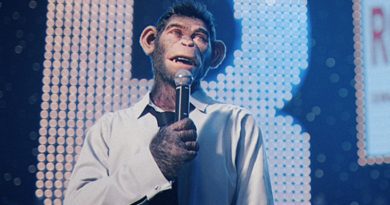It Ends With Us (2024) Review: A Well-Acted, Though Somewhat Overlong Romantic Drama
For a movie like It Ends With Us to strike a fine balance between the glossy romantic drama and the thorny subject matter of domestic violence seems like a tough nut to crack. Adapted from Colleen Hoover’s bestselling novel of the same name, which was first published in 2016 and even surged into next-level popularity, thanks to the #BookTok sub-community. I didn’t read the novel so I will judge this movie on its own merits.
So, the movie follows Lily Bloom (Blake Lively), who returns to her (fictional) hometown of Plethora, Maine for her father’s (Kevin McKidd) funeral. Her mother (Amy Morton) wants her to write an eulogy — something that Lily is reluctant to do so because of the murky past of her childhood. When she was a kid, she remembers vividly how her father used to abuse her mother.
After heading back to Boston, all she cares about the most is managing her newly opened flower shop. Then, one night while lounging on the rooftop, she meets a handsome stranger named Ryle Kincaid (Justin Baldoni, also the director of the movie), who works as a neurosurgeon. It’s like love at first sight from the moment they lay eyes on each other, even though there’s something about his temperamental behaviour. It begins with a clear hint foreshadowing the type of person Ryle is, especially after he first enters the picture storming onto the rooftop and kicking over a chair angrily. Baldoni would use this very hint as his visual depiction of building up Ryle’s abusive nature beneath his irresistibly good-looking charm.
But before the movie sets its course into the dark territory, Baldoni fulfils the genre conventions of a slickly-produced steamy romantic drama between Lily and Ryle. In these earlier scenes, Barry Peterson’s alluring cinematography deserves mention for creating a sensual atmosphere, showing Lily and Ryle enjoying their intimate moments together. Once Ryle starts to show his true colour, Baldoni chooses the subtle visual approach to portray the physical abuse through suggestive moments of clever editing.
In other words, he doesn’t resort to typical, in-your-face scenes of violence often seen in this kind of movie dealing with such a subject matter. Think of it like a horror movie that relies on the power of suggestion, leaving it to the viewers’ imagination how the scene would unfold in their minds. He also uses Lily’s childhood past to generate internal fear and trauma that the adult version of herself is currently experiencing and yet, continues to live in denial. But the cycle of abuse just keeps on coming and it’s a matter of time before Lily had enough.
Although Baldoni subdues the act of violence, he doesn’t entirely omit it altogether. For instance, there’s a moment of escalating tension between Lily’s former high-school sweetheart, Atlas Corrigan (Brandon Sklenar) and Ryle in the latter’s restaurant. Credits also go to Baldoni for bringing out the best in his cast including himself, who made quite an impression playing the abusive boyfriend without succumbing to a scenery-chewing acting style.
Blake Lively’s lead performance as Lily Bloom manages to balance her radiant beauty and charm and her emotional vulnerability upon facing the reality check of a toxic relationship. The only biggest gripe about Lively is her misleading way of promoting her movie as if we (especially those who didn’t read the book) are supposed to expect this to be a feel-good romantic drama. But despite the online backlash, It Ends With Us continues to blossom at the worldwide box office, earning over US$245 million at the time of writing against a US$25 million budget.
It Ends With Us runs at 130 minutes, with some portions of the movie tend to veer into the soap opera clichés and even suffer from a laborious pace along the way. The dialogues, in the meantime, are clunky and stilted in places. It’s far from a great movie but decent enough for a romantic drama that also tackles domestic violence.





